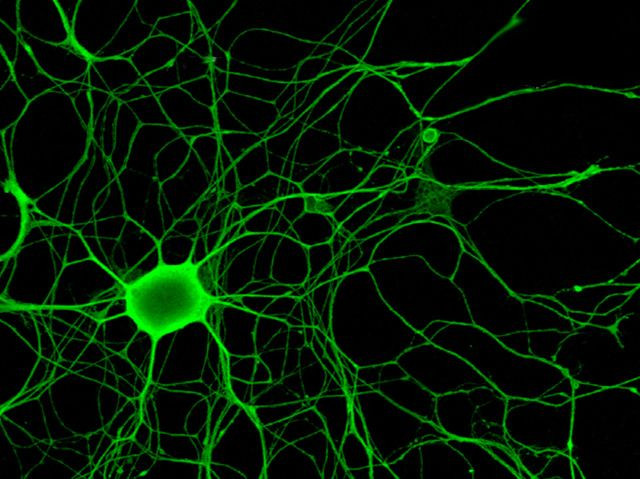Scientists Discover How Immune Cells Can Help Repair Nerve Damage; Is A New Multiple Sclerosis Treatment On Its Way?

Multiple sclerosis (MS) often involves going through various phases of relapse and remission, slowly losing motor control. The disease occurs because the immune system recognizes the fatty insulation sheath of neurons, called myelin, as dangerous and attacks it. The destruction of the myelin layer, then, causes neurons to become inefficient at transmitting their electrical signals — similar to the effects of an electric cord that has its insulation stripped away. Although there are currently few treatments to suppress the immune system to prevent further damage to the nervous system, there is no effective way to help fix damage that has been done.
Researchers from the Universities of Edinburgh and Cambridge are zeroing in on learning how to stimulate the regrowth of myelin on neurons in order to fix the damage caused in multiple sclerosis. The scientists found that when myelin is damaged or lost due to tissue destruction, a specific immune scavenger cell called a macrophage and their brain resident cousins, microglial cells, secrete a protein called activin-A. Activin A, in turn, promotes the production of more myelin, which is mostly produced early on in life when a child begins to gain motor control. The ability to regrow myelin has been an effort among researchers for the better part of the last century after they discovered that myelin destruction was causing the issues found in MS.
"In multiple sclerosis patients, the protective layer surrounding nerve fibres is stripped away and the nerves are exposed and damaged. Approved therapies for multiple sclerosis work by reducing the initial myelin injury — they do not promote myelin regeneration. This study could help find new drug targets to enhance myelin regeneration and help to restore lost function in patients with multiple sclerosis," said Dr. Veronique Miron, of the Medical Research Council Centre for Regenerative Medicine at the University of Edinburgh.
The scientists have tested the process in both cells isolated from humans and in whole living systems in mice. "We urgently need therapies that can help slow the progression of MS and so we're delighted researchers have identified a new, potential way to repair damage to myelin. We look forward to seeing this research develop further," said Dr. Susan Kohlhaas, head of biomedical research at the MS Society.
Activin plays an important role in skin healing and improves wound healing and scar formation. Interestingly, mice born with a non-functional activin gene had neural development defects. The scientists who published the current study are pursuing further methods to enhance the effectiveness of activin-A and hopefully develop a roadmap toward regeneration of the damaged myelin found in MS and other demyelinating diseases. The research was funded by MS Society, the Wellcome Trust, and the Multiple Sclerosis Society of Canada.
Source: Miron V, Boyd A, Zhao J. M2 microglia and macrophages drive oligodendrocyte differentiation during CNS remyelination. Nature Neuroscience. 2013.
Published by Medicaldaily.com



























